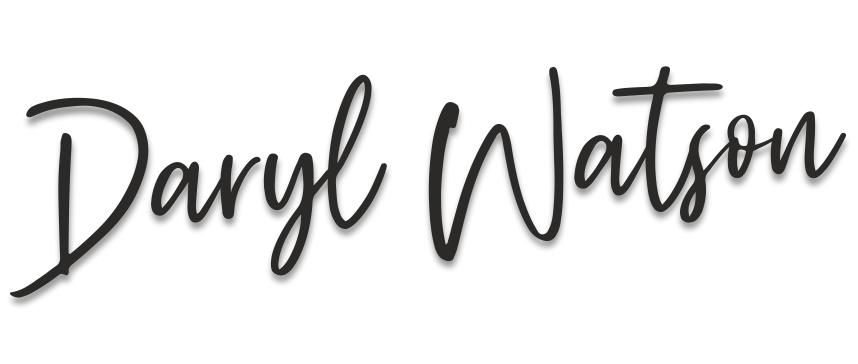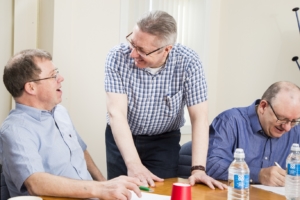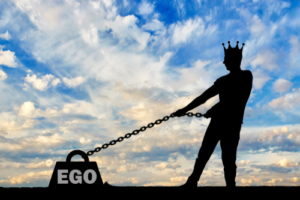We’re always deciding something.
Stripped down to its essentials, life is about making choices and decisions! Who will I vote for? What direction will I move in now? What job will I take? Who will I marry? Is that the house we really want? Will I have that healthy piece of fruit or that tasty cake?! Do I really need that new car? Isn’t it time we moved abroad? What will I have for lunch! Its election time again…. who will I vote for this time around? Big or small, decisions determine our destiny.
As taught by Robert D. Hales, we need to examine our motives every time we make a decision. Life’s plan and the challenge to be successful are demonstrated in an Aesop Fable, “The Man, the Boy, and the Donkey.” The objective of the man and the boy was to journey to the city marketplace and sell the donkey for winter provisions. As they started to town, the father rode the donkey. In the first village, the villagers said, “What an inconsiderate man, riding the donkey and making his son walk!” So the father got off the donkey and let his son ride.In the next hamlet, the people whispered, “What an inconsiderate boy, riding the donkey and making his father walk!”
In frustration, the father climbed on the donkey; and father and son rode the donkey, only to have the people in the next town declare, “How inconsiderate of the man and the boy to overload their beast of burden and treat him in such an inhumane manner!”
In compliance with the dissident voices and mocking fingers, the father and son both got off the donkey to relieve the animal’s burden, only to have the next group of onlookers say, “Can you imagine a man and a boy being so stupid as to not even use their beast of burden for what it was created!”
Then, in anger and total desperation, having tried to please all those who offered advice, the father and son both rode the donkey until it collapsed. The donkey had to be carried to the marketplace. The donkey could not be sold. The people in the marketplace scoffed, “Who wants a worthless donkey that can’t even walk into the city!”
The father and son had failed in their goal of selling the donkey and had no money to buy the winter provisions they needed in order to survive.
How much different the outcome would have been if the father and son had had a plan to follow. Father could have said, “I’ll ride the donkey one-third of the way; Son, you ride the donkey one-third of the way; and we’ll both walk the last third of the way. The donkey will arrive at the marketplace fresh and strong, ready to be sold.”
Then, as they received confusing advice while traveling through each hamlet and village along their way to the city, they could look at each other, give a reassuring wink of the eye, and say, “We have a plan.”
Do you have a plan? Do you know where you are going…..
- In your personal life?
- Or in your family life?
- Even in your career and work life?
If not – then here are some suggestions that will help along the way.
 Firstly, Know Yourself. In order to make a good decision, you really need to understand yourself, your values and what makes you who you really are. There are lots of great personality tests on the market and working with a good personal coach will help you to identify what your core values are. When you know yourself, your core values and what you want out of life, decisions are a lot easier to make. By taking time here, it’ll enable you to really identify what the problem is that you are trying to solve.
Firstly, Know Yourself. In order to make a good decision, you really need to understand yourself, your values and what makes you who you really are. There are lots of great personality tests on the market and working with a good personal coach will help you to identify what your core values are. When you know yourself, your core values and what you want out of life, decisions are a lot easier to make. By taking time here, it’ll enable you to really identify what the problem is that you are trying to solve.
Secondly, Consider the Long Term. This approach to decision making requires time, patience, and probably most important of all…. courage. It takes courage to listen to your inner self, to slow down, ponder, reflect and consider what really matters most. All of these factors allow the creation of some space for yourself, so that ultimately you will hear that inner wisdom, intuition even, thereafter making a decision will become much easier. But!! No matter how strong that intuition is, always do your homework and systematically check through the pros and cons of the options on the table first. Never be short-sighted.
Thirdly, Gather the Facts. What do you really need to know? Decide what information you will need to gather in order to come up with and develop various options to choose from. The more options you have to choose from, then the likelihood is that your final decision will be a much better one. Spend as much time here as you need to consider and then evaluate the options at hand.
Fourthly, Listen! As a professional coach, I spend a fair amount of my time listening to others and over the years I have learned that it is much better to get other peoples perspectives, before you start sharing your own views and opinions. When faced with making the big decisions, it is always better to seek some others viewpoints and listen intently to what they have to say.
Finally, Make the Decision. After you have done all your homework, then now is the time to commit to the way forward and make the decision. Make the commitment and follow through. Even if after all of that, the decision turns out to be the wrong one, don’t let your ego get in the way, its still okay to change course. As I’ve written of before https://www.linkedin.com/pulse/leadership-essentials-humility-vs-pride-daryl-watson humility is a great quality to possess.
In conclusion, there is no scientific formula that will magic up a guaranteed correct decision every time…!!! Further evidenced in the HBR article here… https://hbr.org/2016/03/a-checklist-for-making-faster-better-decisions However, these 5 tips for success are well worn, tried and tested principles that will guide you in those critical decision making moments that are ahead for us all.

 – Being present, in the moment
– Being present, in the moment Firstly, Know Yourself. In order to make a good decision, you really need to understand yourself, your values and what makes you who you really are. There are lots of great personality tests on the market and working with a good personal coach will help you to identify what your core values are. When you know yourself, your core values and what you want out of life, decisions are a lot easier to make. By taking time here, it’ll enable you to really identify what the problem is that you are trying to solve.
Firstly, Know Yourself. In order to make a good decision, you really need to understand yourself, your values and what makes you who you really are. There are lots of great personality tests on the market and working with a good personal coach will help you to identify what your core values are. When you know yourself, your core values and what you want out of life, decisions are a lot easier to make. By taking time here, it’ll enable you to really identify what the problem is that you are trying to solve. We started to explore what we each consistently do across the team. Picking up our markers, the flipchart was quickly filled as we recorded our competencies, processes, jargon, tools, equipment, along with our stories of success and failure. Dave had a new term for all of that too. And then it happened. We recognised that we were much, much stronger together, we were in sync, in one powerful moment, it felt safe with each other. I felt at home.
We started to explore what we each consistently do across the team. Picking up our markers, the flipchart was quickly filled as we recorded our competencies, processes, jargon, tools, equipment, along with our stories of success and failure. Dave had a new term for all of that too. And then it happened. We recognised that we were much, much stronger together, we were in sync, in one powerful moment, it felt safe with each other. I felt at home. When working with individuals and teams, frequently we pinpoint together what it is that might be draining their energy or “power.” A difficult boss, facing up to a challenging conversation, overwhelmed with too much work, a family problem etc.
When working with individuals and teams, frequently we pinpoint together what it is that might be draining their energy or “power.” A difficult boss, facing up to a challenging conversation, overwhelmed with too much work, a family problem etc. – Let go of needing to win and be right all of the time
– Let go of needing to win and be right all of the time